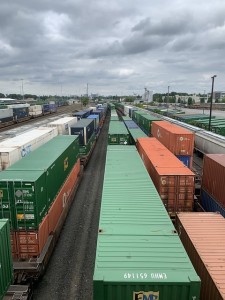This is the conclusion of a study by the audit and consulting firm EY. There are many reasons for the decline in investments. And the effects are also being felt on the railways, the “Iron Silk Road”.
From around 2 billion U.S. dollars to 290 million U.S. dollars, the amount invested by Chinese investors in German companies fell from 2021 to 2022. This is a trend that is evident not only in Germany but also in other European countries. In the high-tech sector alone, more investments were made than in the previous year. The European biotech, pharmaceutical and medical technology sectors continue to be of interest to Chinese investors.
Why are Chinese investors pulling out?
According to the experts at EY, one of the reasons is a decline in company takeovers. But pandemic measures and the tense relationship with the U.S. also play a role. In addition, there is political resistance to Chinese investments in many European countries, they say.
Impact on rail
Duisburg is a central hub for trade with China. After all, the Port of Duisburg is located here, as well as the end of the New Silk Road, which connects China and Europe by rail. But here, too, the volume of trade is declining. De facto, part of the so-called Iron Silk Road is already coming to a halt before the borders of Europe, explains Prof. Markus Taube from the University of Duisburg-Essen in an interview with “Capital”. The reason for this is China’s focus on expanding trade with Central Asian states such as Kazakhstan, Turkmenistan, Uzbekistan and Kyrgyzstan.
Source: capital.de (german language)






